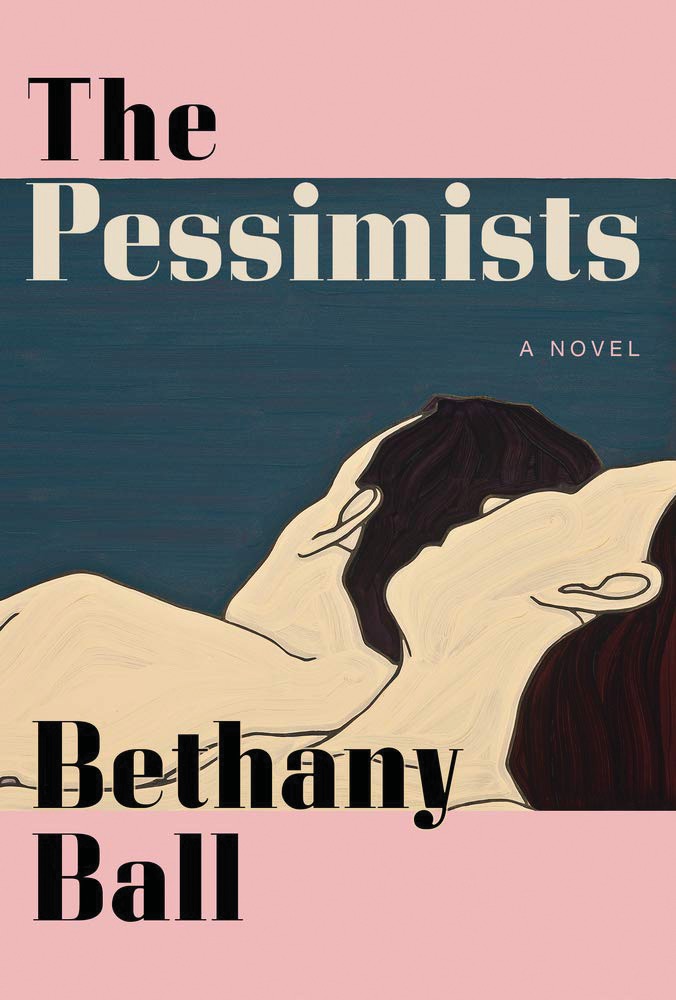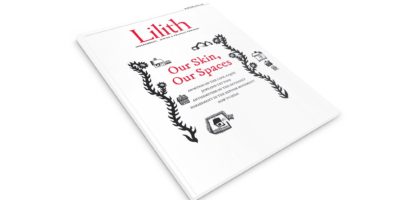
Mothering in WASPY Suburbia: Bethany Ball’s The Pessimists
Brimming with privilege, the inhabitants of the wealthy Connecticut suburb that is the setting for the second novel from Bethany Ball, The Pessimists (Grove, $27.00), seem to have it all. But surfaces can be deceiving and beneath the glittering veneer of sumptuous houses, luxury cars and shocking private school tuitions, things are sordid. Adultery, longing, ennui, and basement bunkers crammed with weapons and ammo are just a few of the secrets that are exposed when a loose group of friends mingle in town. Ball talks to Lilith fiction editor Yona Zeldis McDonough about the underpinnings of her provocative story and the ways the characters are led astray over and over again.
Your last novel dealt with a Jewish family and Israel; what drew you to the WASPy suburbs near New York this time around?
BB: I once overheard a conversation by a group of what Tom Wolfe would call “Masters of the Universe.” They were talking about how getting your kid into an Ivy league school was all about donating to the school before the kid was born. That con- versation stuck in my head.
Half of my own background is pretty WASPy: Congregationalist, Mayflower descendants, a great grandmother who quit the Daughters of the American Revolution because they wouldn’t let Marion Anderson sing at dAR Hall. My husband and I have a joke: If the Jews are the chosen people, the WASPs are the frozen people. Thankfully, WASP culture in America is no longer domi- nant, and yet from it we have inherited these cold, disconnected suburbs full of lonely nuclear families. And although I converted to Judaism when pregnant with my daughter, I can’t help but see (and laugh at and bemoan) my own WASPy ways.
Your character Rachel is half-Jewish; does this make her feel like an alien in her world?
Rachel definitely feels like an alien, and it has to do in part with leaving New York City for more homogenous suburbs and also the antisemitic microaggressions that keep getting lobbed her way. She’s vulnerable perhaps for the first time in her life. Children will do that to even the toughest of women.
Let’s talk about the hoity-toity Petra School which is central to the action—what was its inspiration? Do you feel some private schools can demonize parents, particularly mothers?
My mother was a Detroit Public School teacher for thirty years and she told me once that public school teachers are paid a lot more than private school teachers but have to put up with and deal with more behavioral issues. Private schools pay less, but kids can be thrown out. A friend of mine recently called me upset that the private school where her son is enrolled was calling her for every minor infraction. In their eyes, it’s her job to fix the kid.
This sort of thinking goes hand in hand with private school ideology—heavily invested in the idea that nurture counts for a lot, if not everything, so that paying top dollar for a private school will mold a child into a happy, healthy, productive, successful member of society. This philosophy also means it’s the mother’s job, if not the mother’s fault, to correct the child’s behavior.
That said, all schools have a long way to go when it comes to race. My hope is that as a society we recommit to public schools. It’s time to stop putting our own children first and to consider what’s good for all children.
The administration at Petra chooses not to celebrate Passover at school.
Yes. Those sorts of policies let kids know that their traditions are not as important.
You’ve dedicated the novel to its mothers and introduced us to a trio of them, each with her own way of coping. Were you trying to explore the differing approaches to mothering without judging or condemning?
Oh yes. My sympathy lies entirely with mothers, with all the people regardless of gender who do the work of mothering: or in other words, nurturing of humans. The good ones, the struggling ones, and especially those that other mothers think are bad.
There’s not a lot of support for mothers, even in the best of circumstances, and there’s tremendous judgment. As my friend, the writer Kim Brooks, has said: “We like to make everything about personal choice. I chose to be a stay-at-home mom or I chose to be a career woman or I chose not to be a parent… and most people want a little bit of all of it, but we don’t provide that as an option, so we force people into these really stark choices, so then when things are hard or don’t work out, we blame them and say, oh, they made the wrong choice.”




